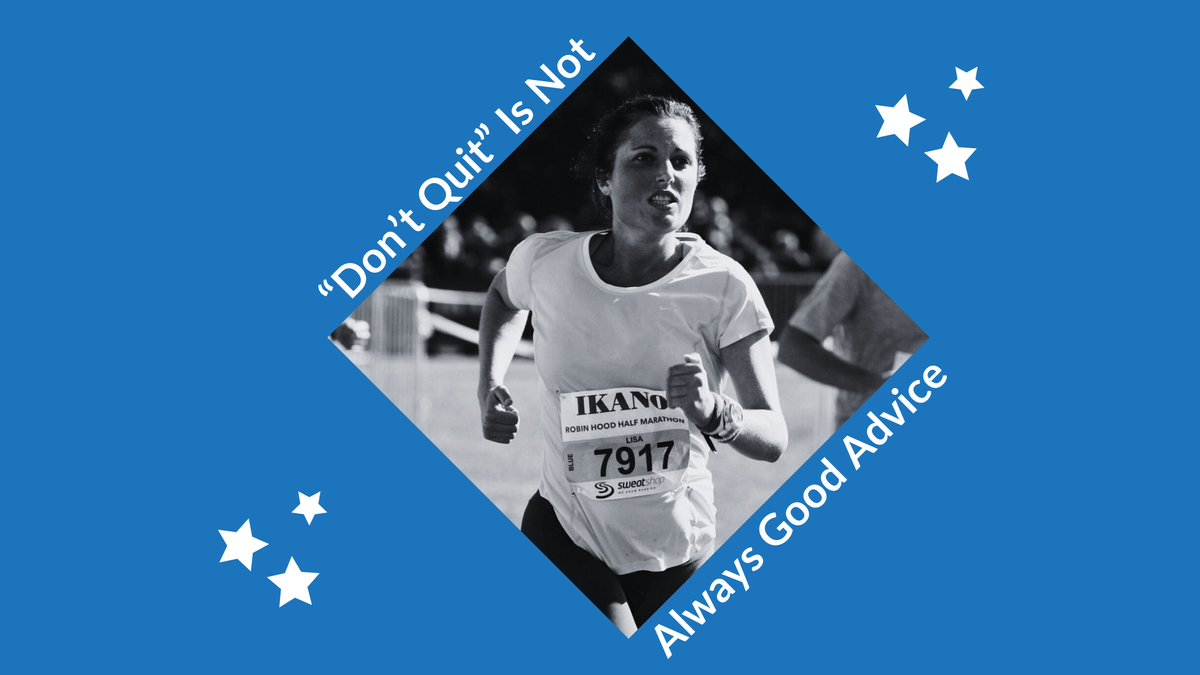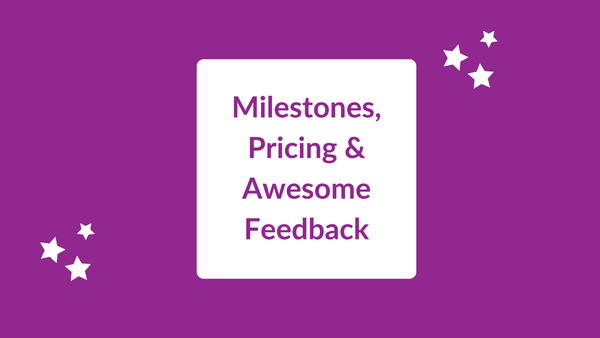"Don't quit" is not always good advice
Don't just "keep going" in the hope things will change. You need to do something to change them if you want to carry on freelancing.

In Monday's email, I talked about how struggling freelancers could adapt when business is slow.
I'm not talking about managing the general fluctuations in work that most freelancers experience. You can usually push through a quiet period if you don't let the uncertainty panic you.
I'm talking about dealing with a drop in work over a prolonged period of time.
Almost daily, I'm seeing posts on LinkedIn from freelancers who have no work coming in and are completely desperate. Freelancers who are contemplating a return to employment because the income from self-employment isn't covering their bills.
And their posts are flooded with comments such as: "keep going," "don't quit," "stick with it," and "things will get better."
I know people are saying this to be supportive, but it's crappy advice.
Things might get better, but they might not. And if you aren't getting the work you want or need, something has to change. You need to adapt - invest in learning new skills, change your marketing strategy, target a new sector, or diversify your products and services. Be proactive.
Don't just "keep going" in the hope things will change. You need to do something to change them if you want to carry on freelancing.
But what if you don't want to carry on?
What if the uncertainty and anxiety that come with freelancing are too much for you?
Well, then maybe it's time to take a break from it.
If you're losing sleep, making yourself ill with worry, and getting yourself into financial difficulty because your famine periods are too extreme, maybe freelancing isn't right for you. Or maybe it just isn't right for you right now.
Taking a break from freelancing to go back to employment (or going back to employment permanently) isn't quitting. And it doesn't mean you've failed
If somebody walks away from a 10-year career in one industry to take a role in another industry, or to go back into education, or to try self-employment, nobody questions it.
So why is it seen as quitting if someone who has been working for themselves for ten years or two years or a few months wants to go back to employment?
It's not quitting.
You can decide to move away from freelancing for any number of reasons.
Maybe you want something less stressful.
Maybe you miss being part of a team.
Maybe you are bored of doing whatever your business does.
Maybe you can't get the clients you want.
Maybe you fancy a change of direction.
Maybe a client has offered you an amazing opportunity as an employee.
Maybe you need to earn more.
Maybe you find the struggles of self-employment too overwhelming.
Maybe you've found your dream job.
It doesn't matter what the reason is.
What matters is that switching between self-employment and employment is no different to switching from one job to another. If you want to do it, you can. And you don't need to justify your reasons.
I appreciate some people have limited options because they have childcare or other caring responsibilities that make working set hours difficult.
But for those people who can choose between employment or self-employment, you need to do what is right for you.
Don't make yourself ill or bankrupt as a freelancer just because somebody on LinkedIn told you to "stick with it."
It's ok to try freelancing and decide it's not for you and it's ok to change direction in your business.
People change jobs or industries all the time because they fancy something new.
Not everyone wants to do the same thing forever.
I made a change in my business.
I started out as a copywriter and I loved writing copy for people. But as much as I loved it, it wasn't all I wanted to do day in and day out.
So I started offering training courses. And then I started offering consultations. And I got interested in doing other things.
Writing copy for other people didn't fill me with the same joy as it used to. So I stopped offering done-for-you copywriting services to focus on training, consulting and mentoring.
And I love doing those things.
Imagine if I'd fallen into the trap of thinking that because I started a copywriting business I had to do that forever.
As stupid as that sounds, it does sometimes feel as though people think that if you quit your job to start a business then that's the only thing you can ever do.
It's not.
You can switch from doing one thing to doing something else.
You can close one business and start a completely different one.
You can take on a part-time job alongside working for yourself because you miss the social aspects of 'going to work'.
You can decide you fancy going back into full-time employment for a while (or forever).
You can do whatever feels right for you.
Don't let strangers on the internet make you feel like you have to keep going in a specific direction.
You have a choice. And if that choice means "quitting" one thing to do another, then so be it.




